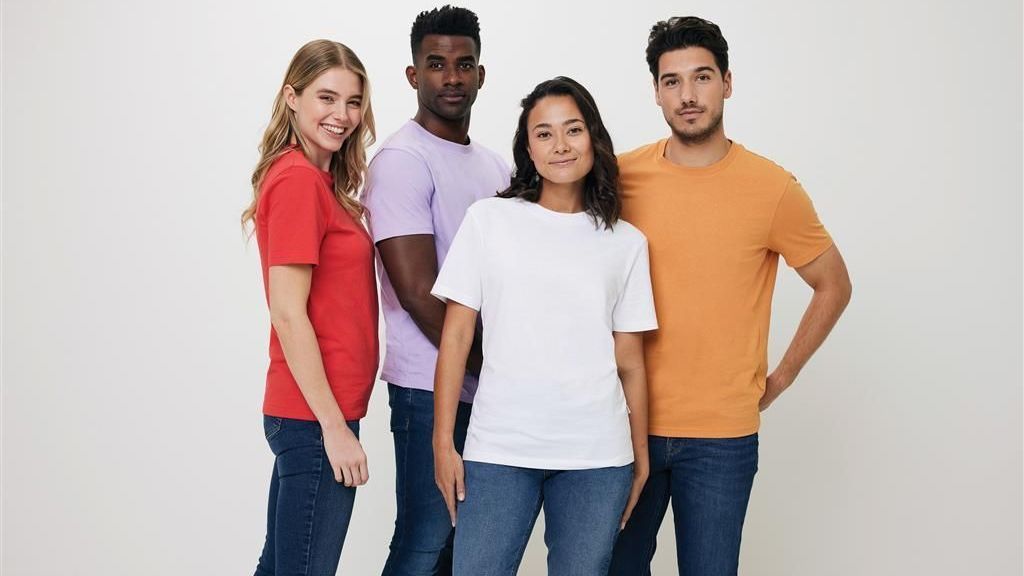Recycled Aluminium for eco promotional products
2 January 2025
Benefits of recycled aluminium for eco promotional merchandise

Aluminium is a versatile metal that surrounds us in everyday life—think cans, foil, car parts, and even airplanes. Its lightweight strength, corrosion resistance, and sleek appearance make it an ideal material for countless applications, including eco-conscious promotional products like:
- Aluminium water bottles
- Pens
- USB drives and power banks
- Cabling
- Mini speaker casings
Not only is aluminium perfect for branding through engraving or printing, but it also boasts a key sustainability advantage: it can be recycled 100% without losing quality.
________________________________________
Why Choose Recycled Aluminium?
Energy Efficiency
Recycling aluminium requires up to 95% less energy compared to producing new aluminium from raw materials. This drastic reduction in energy use translates into significantly lower greenhouse gas emissions. Amazingly, around 75% of all aluminium ever produced is still in use today, making it one of the most sustainable materials available.
Environmental Benefits
The use of recycled aluminium reduces the need for mining and refining bauxite, which can disrupt ecosystems and generate large carbon footprints. Additionally, it minimises reliance on landfills, conserving space and reducing pollution. Recycling processes also generate fewer emissions compared to primary aluminium production, especially when renewable energy sources like hydroelectricity power the process.
Circular Economy Impact
Aluminium is a cornerstone of the circular economy due to its infinite recyclability. In industrial markets like construction and automotive, recycling rates for aluminium reach as high as 90%. The recycling process ensures that valuable resources remain in use, aligning with global efforts to reduce waste and combat climate change.
________________________________________
Recycled Aluminium in Promotional Products
By incorporating recycled aluminium into promotional items, businesses can align their branding with sustainability goals. Products like water bottles, pens, and power banks not only showcase your logo but also reflect your commitment to environmental responsibility. These items are durable, reusable, and stylish, offering a tangible way to reduce waste while promoting your brand.
________________________________________
Economic Advantages of Aluminium Recycling
Aluminium recycling is more than an environmental solution—it’s an economic driver. In the United States, for example, aluminium recycling supports over 100,000 jobs, generates $1.6 billion in material sales, and saves enough energy annually to power 1.5 million homes. Globally, countries embracing the circular economy model, like Germany and the Netherlands, are reaping similar benefits through efficient recycling systems.
________________________________________
Aluminium and Climate Change Mitigation
Despite accounting for 2% of global greenhouse gas emissions, the aluminium industry is making strides to reduce its environmental impact. Innovations in low-carbon production methods and reliance on renewable energy sources are helping decarbonise aluminium production. For example:
• Canada uses hydroelectric power for approximately 90% of its aluminium production, making it one of the most sustainable producers.
• China, with its reliance on coal-generated electricity, has begun transitioning to cleaner energy sources to curb emissions.
With its role in electric vehicles, solar panels, and lightweight construction, aluminium is vital in reducing emissions and promoting a greener future.
________________________________________
The Path Forward: Recycled Aluminium for a Sustainable Future
Recycled aluminium offers undeniable benefits—lower energy consumption, reduced emissions, and a closed-loop lifecycle that supports both the environment and the economy. By choosing products made from recycled aluminium, businesses can make a meaningful impact on sustainability while showcasing their eco-conscious values.
At Pavilion Earth, we champion the use of recycled and sustainable materials in all our promotional products. Let’s work together to create a greener planet, one aluminium product at a time.
Discover our eco-friendly aluminium product range today.
Share this blog:

The best eco bottle is the Ocean Bottle made using ocean bound plastics - but others rank highly too. Namely • Cove Recycled Stainless Steel Bottle • Aspen Glass Bottle • Glass and Bamboo Infuser • Bio Plastic Sports bottle How do you decide what is the BEST eco water bottle? To rank eco products is always very difficult because there is no real standard measure for eco credentials, and one has to balance eco credentials with price. And most importantly the bottle must work as a promotional product. So, it must be retained and look great when branded. With Pavilion Earth’s years of selling eco products, we have come up with our ranking based on the popularity and success of various promotional water bottles. One significant factor is that all reusable bottles whether made from eco materials or not can be considered eco-friendly. A reusable bottle in any format stops the use of single use plastic bottles and thus a ‘Refill NOT Landfill’ approach. The polythene and PET bottles used by the drinks industry are a significant problem , adding to ocean waste. So which are the best promotional bottles from Pavilion’s experience: 1. The Ocean Bottle




